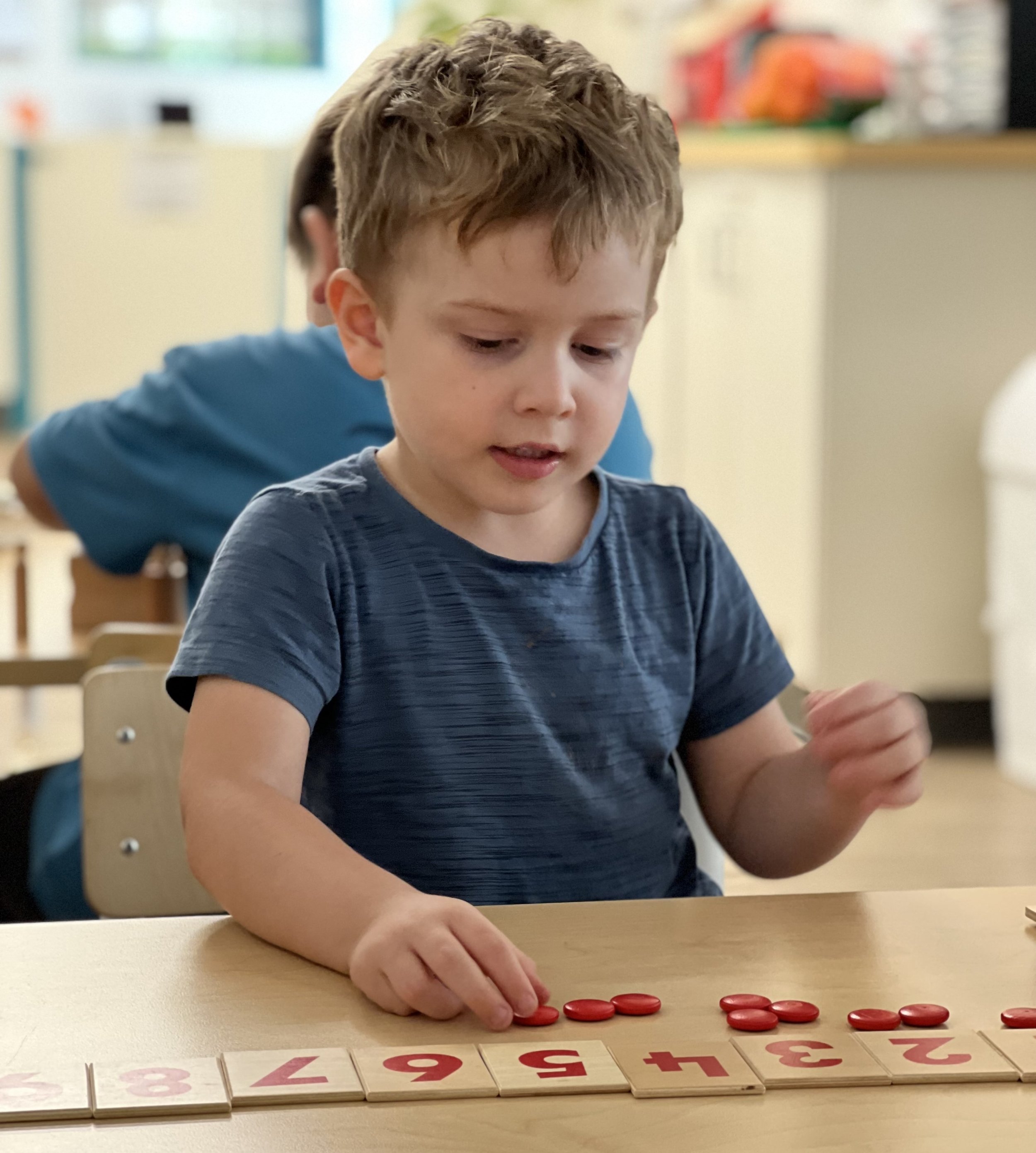
Our Educational Program
At Seeds Montessori, we provide a Montessori based educational program where we promote the holistic development of each child; encourage independence in a planned and prepared learning environment; value uniqueness and respect individuality.
Our educational program incorporates the Early Years Learning Framework (EYLF), ensuring your child receives quality education and care delivered by qualified and trained educators.
Our classrooms are designed to deliver independent learning and exploration by each child in line with the carefully designed educational program focusing on 5 key areas:
Practical Life.
Practical Life activities are specific to children’s culture, reflecting their home environment and have a focus on 4 key areas:
Care of self (e.g. food preparation, washing, dressing)
Care of inside & outside environments (e.g. cleaning, gardening, care of pets)
Grace & courtesy (e.g. greetings, manners, social interactions)
Applied exercises (e.g. refining movements, walking the line, moving quietly)
Sensorial.
Sensorial materials and activities show a sense of order, exactness, self-correction and quiet reflection for children, allowing them to develop and refine each of their senses. Sensorial materials are classified into 7 areas:
Sight (visual)
Touch (tactile)
Smell (olfactory)
Taste (gustatory)
Sound (auditory)
Stereognostic (kinaesthetic)
Thermic
Activities include the manipulation of specifically designed materials that isolate qualities, refine fine motor skills, visual and auditory senses and develop coordination and the ability to order and classify. Materials include Pink Tower, Brown Stairs, Knobbed Cylinders, Colour Tablets.
Literacy.
Literacy and language is based on phonetic awareness. Language is not an isolated topic but runs through the curriculum. The spoken language is the foundation for writing and then reading. Children work through specific hands-on and tactile language materials such as the sandpaper letters to the moveable alphabet.
The literacy shelf has three fundamental materials::
Sensorial - Sandpaper letters provide a sensory approach, allowing the child to build muscular memory when tracing the letters.
Mechanical - Insets for design prepare the hand for writing.
Intellectual - Movable alphabet encourages children to read phonetically through sounding out letters and words, using controlled materials.
Many activities prepare children indirectly, for writing through developing their fine motor skills.
Mathematics.
Mathematics involves a variety of materials that allow children to progress mathematical concepts from concrete to abstract, quantity and symbol.
Hands-on materials such as number rods, sandpaper numbers, number boards, spindle box, number tiles, beads, and games are used to help children develop their mathematical skills.
Each exercise builds upon another and the child gradually moves from concrete to abstract areas such as number recognition, place value, addition, subtraction, multiplication, and fractions.
Cultural Studies.
Culture allows the child to explore the natural world around them and includes:
Geography (continents, landforms, earth layers, solar system),
Zoology (classification, physiology of animals),
Botany (ecology, classification, physiology of plants),
History (time lines, using a calendar),
Science.
Art and music could be considered cultural activities, however, creativity is encouraged across all curriculum areas. The cultural area is clearly identifiable by globes, puzzle maps, flags and perhaps images or materials from other cultures, including art, music, history, geography, biology, zoology, physics/science.
The materials in this area have a practical life and/or sensorial aspect and involve manipulation with the hand and mind working together.





